Swiss march against Israeli offensive
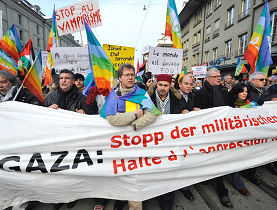
More than 7,000 people gathered in Bern on Saturday to protest at Israeli aggression in the Gaza Strip, according to organisers. The police put the crowd at 2,000.
The peaceful demonstration was one of many across Europe on Saturday, a day which saw continued violence in the Palestinian territory.
Israeli forces attacked rocket-launching sites and smuggling tunnels and planes dropped leaflets warning of an escalation of attacks in Gaza. Palestinian militants fired at least 15 rockets at Israel.
“We abhor any military violence which affects civilians,” said Ueli Leuenberger, president of the leftwing Green Party, who spoke at the gathering in the Swiss capital.
He called on the government to demand that the Israeli government put an end to the violence.
Guy Bollag, member of a Swiss Jewish peace organisation, said they were “concerned, saddened and angry about the escalation of violence” in the region, condemning the Hamas rockets fired into Israel.
Generally peaceful
Elsewhere in Europe, some 20,000 people took to the streets in Berlin and other German cities. An estimated 8,500 rallied at Berlin’s Alexanderplatz and then marched to the city’s main train station.
A police spokeswoman said several Hamas flags were confiscated but that the demonstration was peaceful overall.
In the biggest protest some 10,000 people marched in the western German city of Duisburg calling for an immediate end to the violence and a lifting of the Israeli blockade of Gaza. They carried signs with slogans like “Freedom for Palestine” and “Down with the murdering of children”.
Protesters threw snowballs at two Israeli flags that hung from the windows of a house along the demonstration route, but otherwise no incidents were reported. Police had the house residents remove the flags to prevent any further escalation.
Flying shoes
In France more than 80 demonstrations were planned for Saturday, with the biggest set for Paris. Some 3,800 police were braced for 20,000-30,000 protestors.
Thousands of demonstrators in the Scottish capital of Edinburgh gathered in front of the American consulate to toss shoes at the 19th-century town house. Television footage showed police recoiling as a storm of shoes flew over their heads.
“They were just flying, like hail through the sky,” according to an organiser, who said protestors were angry at the United States for failing to stop the bloodshed in Gaza.
In London about 12,000 demonstrators rallied in Hyde Park in support of the Palestinian cause, carrying placards marked “Gaza: Stop the massacre” and chanting “free, free Palestine”.
More than 2,000 Greeks marched through Athens and Thessaloniki and similar scenes and numbers were witnessed in the Hungarian capital, Budapest, and the Italian cities of Milan, Turin and Venice.
Saturday’s protests were largely peaceful, but more than 60 people were injured during a large demonstration on Friday in Algeria’s capital, many by stone throwing.
No resolution
On Saturday flames and smoke rose over Gaza City amid continued heavy fighting.
Israel launched the offensive on December 27 to halt years of Palestinian rocket attacks on southern Israel. A week later, ground troops moved in.
Israel has come under international criticism for the rising number of civilian casualties. Palestinian medical officials say roughly half of the more than 800 Palestinians who have been killed were civilians. Thirteen Israelis have died.
Israel and Hamas ignored a UN resolution passed on Thursday calling for an immediate and durable ceasefire that would lead to the withdrawal of Israeli troops from Gaza.
Israel dismissed the resolution as impractical, while Hamas, whose government in Gaza is not recognised internationally, is angry it was not consulted in the diplomatic efforts.
Israel says any ceasefire must include assurances that Hamas will halt attacks and end the smuggling of weapons into Gaza through the porous Egyptian border.
Hamas has said it won’t accept any ceasefire deal that does not include the full opening of Gaza’s border crossings. The UN resolution emphasised the need to open all crossings, which Israel and Egypt have kept sealed since Hamas militants forcibly seized control of the territory 18 months ago.
Israeli leaders oppose that step because it would allow Hamas to strengthen its hold on Gaza.
swissinfo with agencies
Hamas emerged in 1987 at the beginning of the first intifada.
The name is the abbreviation for Islamic Resistance Movement, but it is also the Arabic word for “enthusiasm”.
Although its charter calls for the destruction of Israel, leaders have said they are prepared for a long-term truce if Israel withdraws from land captured in the 1967 war.
Most western states regard it as a terrorist organisation and refuse to deal with it.
Hamas won democratic elections in the Palestinian Territories in 2006.
It took power in Gaza in June 2007 after months of fighting with the rival Fatah movement of President Mahmud Abbas, which still runs the Palestinian-ruled parts of the West Bank.
Since then Israel has imposed a tight blockade on the Strip, allowing in only bare essentials.
Hamas has fired missiles at the Israeli town of Sderot; Israel says the current invasion is designed to protect its citizens there. At the end of last December, there had been 19 Israeli civilian deaths following rocket attacks since 2002.
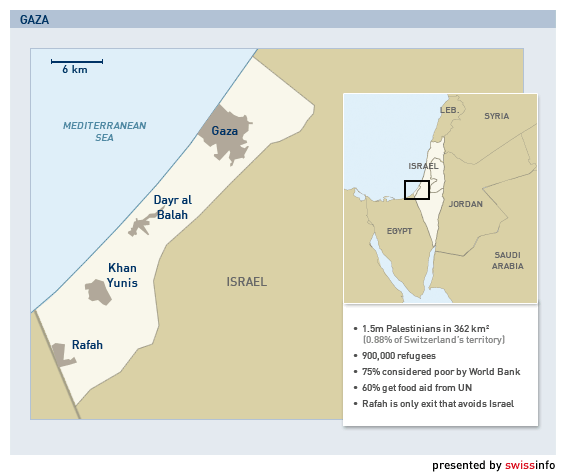

In compliance with the JTI standards
More: SWI swissinfo.ch certified by the Journalism Trust Initiative
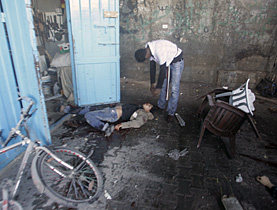
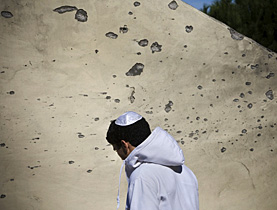
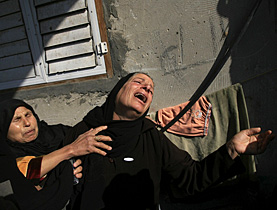
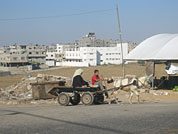
You can find an overview of ongoing debates with our journalists here. Please join us!
If you want to start a conversation about a topic raised in this article or want to report factual errors, email us at english@swissinfo.ch.